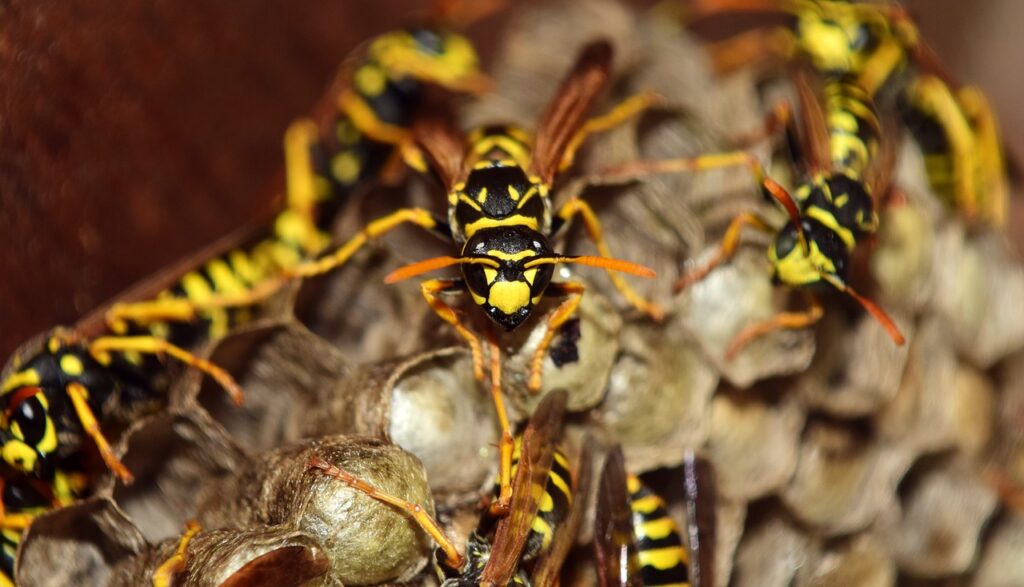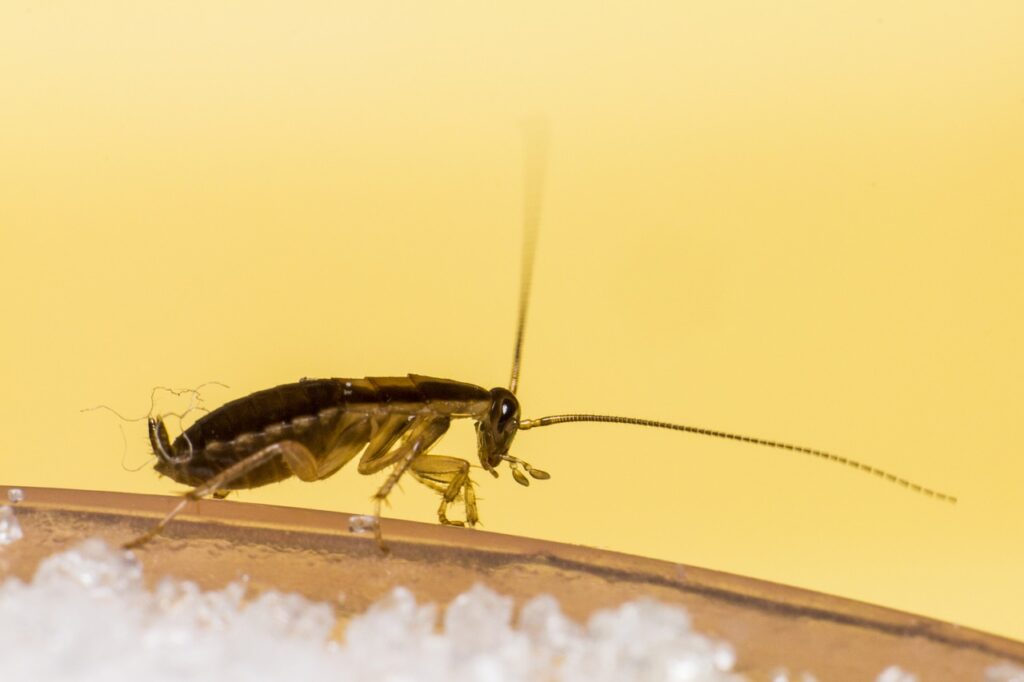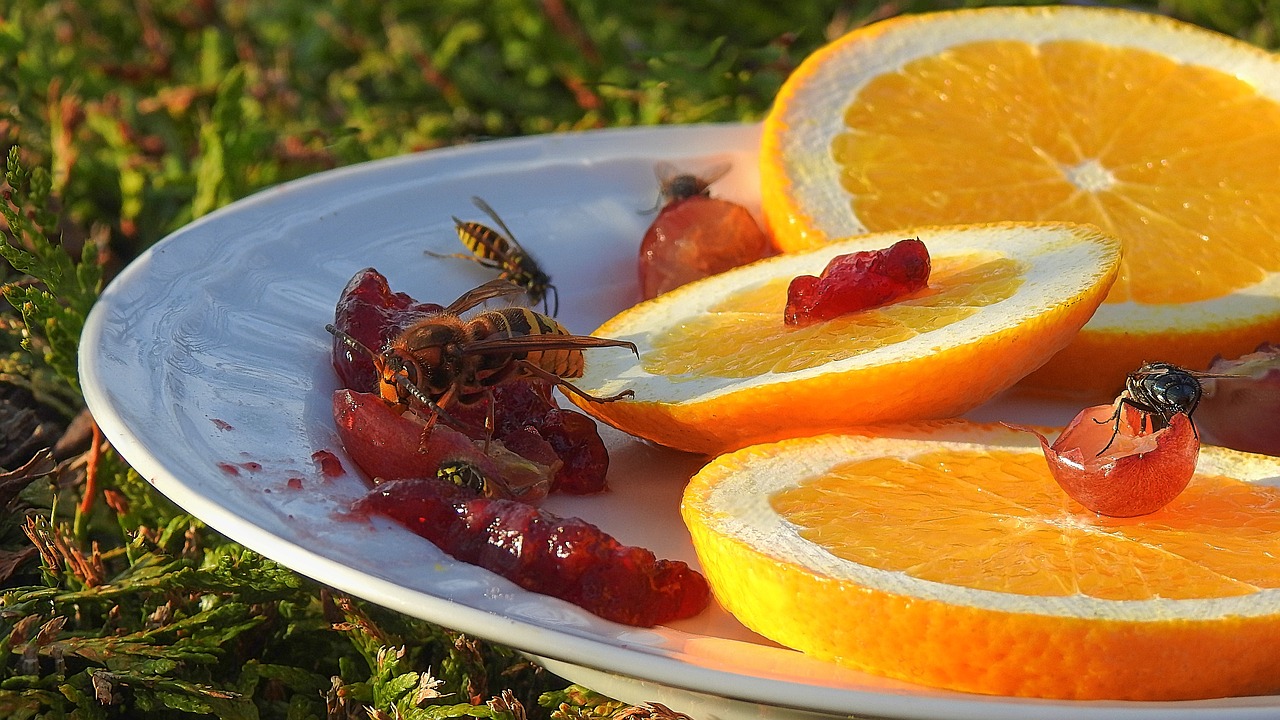Wasp infestations can be very frustrating and are potentially harmful. So, instead of dealing with wasp infestations, why not just prevent them from happening in the first place? The best way to prevent wasps from infesting your property is to eliminate the things that attract them to your property. But what are the things that attract wasps to your home?
Why you don’t want to attract wasps
Wasp infestations are bad news. Wasps are incredibly territorial, so you don’t want them nesting in or around your property. Their stings can cause medical emergencies. And their nests can be structural nightmares!
- Wasps can be very territorial once they nest on your property. Wasps are very aggressive, especially when they feel like you are a threat to their nest. Their territorial nature is one of the reasons why they thrive so well as pests. In fact, they are so territorial that you can even set up a fake wasp nest to prevent them from nesting on your property. They won’t fight for your property and just look for another area where they can nest.
- Wasp stings are dangerous, even life-threatening. Wasps are aggressive not just for show. They back it up with dangerous wasp stings. Wasp stings are not just painful. They can also be medical emergencies. Though rare, it’s possible to get extreme allergic reactions from wasp stings, resulting in anaphylaxis. If you experience difficulty in breathing or swelling in the mouth or throat after getting stung by a wasp, seek medical attention immediately.
- Wasps can cause structural damage. Wasp nests are made from wood pulp and wasp saliva, giving them their distinct paper-like texture. You will often see these nests in sheltered spots. Unfortunately, you may have a lot of sheltered spots around your property, such as the cavities in your walls and the sheds near your garage door. The nesting habits of wasps can damage your property, and that can be a big problem of its own.

Things that attract wasps
Prevent wasp infestations by avoiding the things that attract wasps. Here are the biggest wasp attractors and how to avoid them.
1. Open passageways
Dealing with a wasp infestation outside is already bad enough. But do you know what’s worse? Dealing with a wasp infestation inside your home is even more complicated. When the wasps are outside, at least you have doors, walls, and windows to shield you. But when they are inside, you won’t have any barriers separating you from these pests.
Prevent wasps from getting inside your home by keeping all passageways closed. Chimneys, doors, ventilation slots, and windows are not the only passageways these pests use. They can also get through the cracks and holes in your walls, so make sure to seal these to prevent them from becoming pest passageways.
2. Easy access to food and water
Wasps have different food preferences depending on the season. During the warmer months, they prefer protein-rich foods like insects. These will give them the energy and nutrients they need to thrive. During the colder months, they prefer sweet foods like flower nectars and fruits. These will help them prepare their bodies for fall and winter where resources are scarce.
Wasps are more likely to visit your home if they can easily access protein-rich and sweet foods around your property. And take note that they don’t just eat insects, flower nectars, and fruits. They can also eat the stuff from your kitchen and garbage cans. Store your food and water properly and keep your garbage cans closed to avoid scavenging wasps.
3. Bountiful home exterior
If you happen to have a lot of flowers, fruits, and insects outside your home, you are at a disadvantage because these are natural wasp attractors. Wasps are so aggressive toward insects that they are actually considered natural pest controllers. Many farmers and gardeners incorporate wasps into their place of work to control aphids, armyworms, caterpillars, spiders, weevils, whiteflies, and many other insects.
Sadly, there is not much you can do. But you can somehow control the number of these natural wasp attractors by maintaining the cleanliness of your home’s exterior, picking up mature fruits and vegetables, trimming your greeneries, and avoiding planting flowers.
4. Safe refuge
There are two main things that attract wasps to your home – resources and shelter. Shelter can be a bit tricky. You can easily make resources inaccessible by storing your food and water. But you can’t truly make shelter inaccessible. Your very home is a shelter to wasps. The least you can do is to try to make your home unattractive to wasps. Seal all cracks and holes to prevent wasps from squeezing in and building nests.
An often overlooked wasp attractor is untreated wood. Wasps love untreated wood, much like their honey-making cousins. This is especially true for wood that is exposed to the elements, such as the ones you can find in decks and eaves. Make sure to paint, stain, or varnish them to avoid attracting unwanted visitors.
5. Other pest infestations
Remember that wasps are attracted to insects because they are delicious sources of protein. Unfortunately, insects can thrive not just in your garden, lawn, or yard. They can also thrive inside your home in infestations.
If wasps find your home to be a bountiful source of insects, they may consider nesting and cause you a lot of trouble. You will basically have two infestations in your home – a wasp infestation and another insect infestation that is sustaining the wasps. If you are suffering from an insect infestation, call a pest control professional to get rid of it before it even attracts other pests like wasps.

Removing things that attract wasps
You don’t have to suffer from wasp infestations. They are completely preventable, especially when you remove or minimize the things that may attract wasps to your property. Don’t give wasps the two things that they like most – resources and shelter. If you can limit these two things, you will significantly reduce your chances of attracting these stinging pests.
If all else fails, it’s best to call pest control professionals to get rid of wasp infestations. After all, wasps are incredibly dangerous, especially when they feel threatened. You don’t have to put yourself at risk and just let experienced and knowledgeable people do the work for you.

